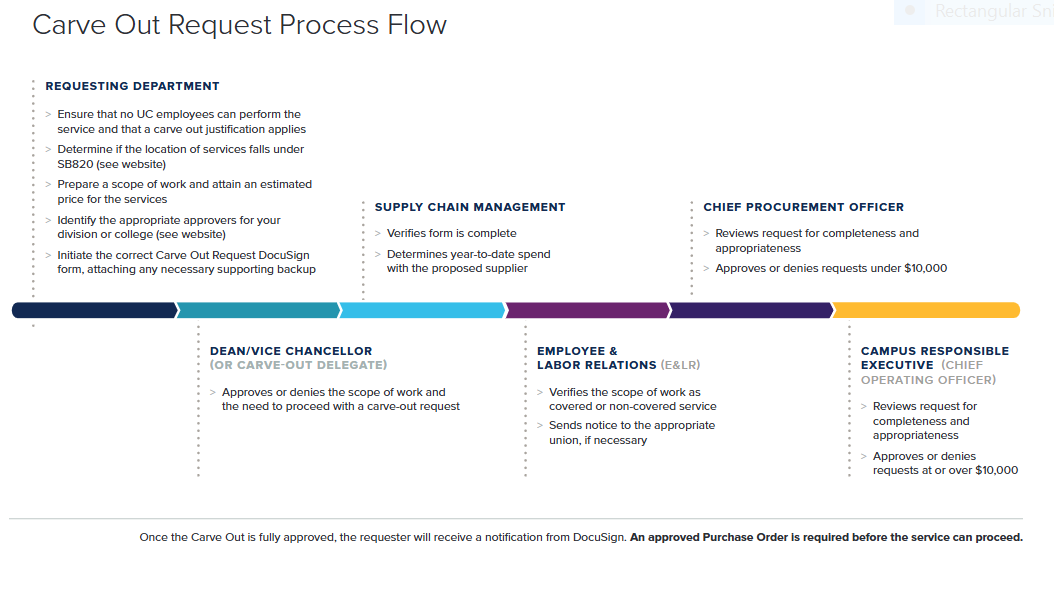UC policies protect against outsourcing of covered services.
The University of California is committed to maintaining a strong in-house workforce and supporting living wages and benefits for employees. Covered services include work customarily performed by SX (service) and EX (patient care technical) bargaining unit employees at the university.
Examples of covered services include cleaning, custodial, janitorial or housekeeping services; food services; full-service catering, laundry services; groundskeeping; building maintenance; transportation and parking services; security services; billing and coding services; sterile processing; hospital or nursing assistant services; and medical imaging or other medical technician services.
- Policy 5402 and Article 5
- UC Regents Policy 5402 and Article 5 of the Collective Bargaining Agreement are the primary framework documents that prohibit contracting out for services that can be performed by represented university staff.
- Senate Bill 820
- California Senate Bill 820 applies to any UC facility that utilizes Capital Funds for capital expenditures. The bill requires that all services traditionally performed by university staff in that building or facility be performed by UC employees. SB 820 has no provisions for carve outs. In general, except in the case of a true emergency situation in the facility, covered services may not be provided by anyone other than university employees.
- Requirements for Service Providers
- If departments are given authority to contract for covered services, then the supplier must provide its employees with wages and benefits equivalent to those provided by the university.
In general, contracts for covered services require the supplier to provide its employees performing the covered services wages and benefits equivalent to those provided to university employees performing the same work. "Benefits" includes health, dental, vision, and retirement as well as vacation, sick leave, and holiday pay. - Catering
- Catering is defined as food and/or beverage service that includes food service or food preparation. Please note that food drop-off or delivery, without any additional service or preparation provided, is not considered catering and is not considered a covered service. Specifics on catering can be found on our Catering Information page.
- Carve Outs
- There are limited allowances for contracted services under university policy, such as:
--Required by law, grants and/or court decisions
--Needed to address an emergency
--Not available at the location in sufficient quantity or expertise level
--Incidental to a leased property
--Urgent, temporary or occasional
--Securing equipment, material or services the campus cannot feasibly provide, this can include work beyond 10 miles of campus
--Performed in clinical operations to address short-term needs - Requesting a Carve Out
- If you believe your situation falls under the allowances for a carve out, select the appropriate carve out request form below:
--Covered Services Carve Out Request
--Information about the UC Davis Health carve out process
Routing Workflow
View a PDF of the flowchart below.

Resources
- Regents Policy 5402
- Article 5 of the University Collective Bargaining Agreement
- Senate Bill 820: To determine if your facility is a General Fund capital expenditure, contact Design and Construction Management at cpmahelp@ucdavis.edu.
- SX and EX job titles spreadsheet
- Questions can be directed to coveredservices@ucdavis.edu





